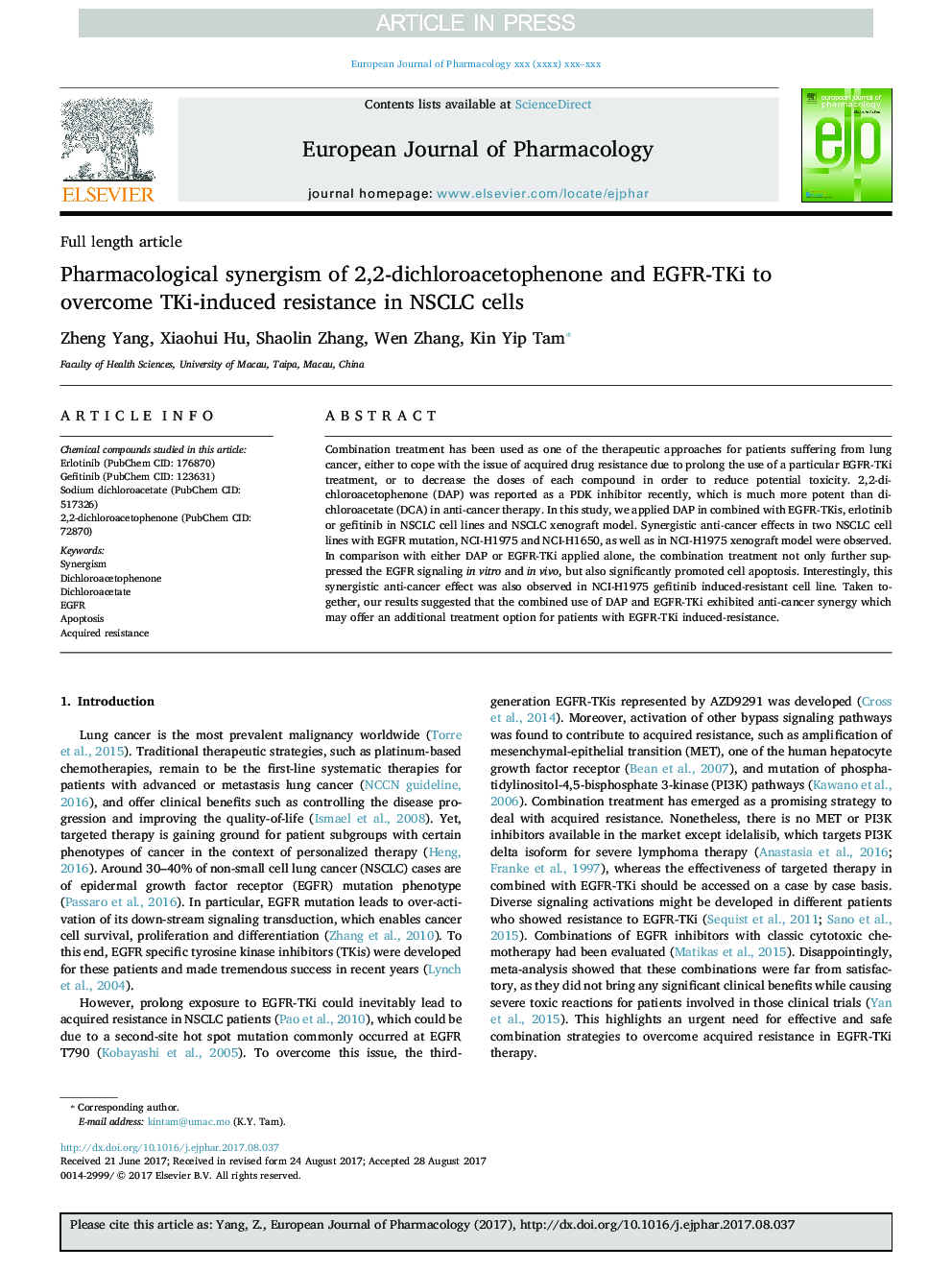| Article ID | Journal | Published Year | Pages | File Type |
|---|---|---|---|---|
| 8529892 | European Journal of Pharmacology | 2017 | 8 Pages |
Abstract
Combination treatment has been used as one of the therapeutic approaches for patients suffering from lung cancer, either to cope with the issue of acquired drug resistance due to prolong the use of a particular EGFR-TKi treatment, or to decrease the doses of each compound in order to reduce potential toxicity. 2,2-dichloroacetophenone (DAP) was reported as a PDK inhibitor recently, which is much more potent than dichloroacetate (DCA) in anti-cancer therapy. In this study, we applied DAP in combined with EGFR-TKis, erlotinib or gefitinib in NSCLC cell lines and NSCLC xenograft model. Synergistic anti-cancer effects in two NSCLC cell lines with EGFR mutation, NCI-H1975 and NCI-H1650, as well as in NCI-H1975 xenograft model were observed. In comparison with either DAP or EGFR-TKi applied alone, the combination treatment not only further suppressed the EGFR signaling in vitro and in vivo, but also significantly promoted cell apoptosis. Interestingly, this synergistic anti-cancer effect was also observed in NCI-H1975 gefitinib induced-resistant cell line. Taken together, our results suggested that the combined use of DAP and EGFR-TKi exhibited anti-cancer synergy which may offer an additional treatment option for patients with EGFR-TKi induced-resistance.
Related Topics
Life Sciences
Neuroscience
Cellular and Molecular Neuroscience
Authors
Zheng Yang, Xiaohui Hu, Shaolin Zhang, Wen Zhang, Kin Yip Tam,
